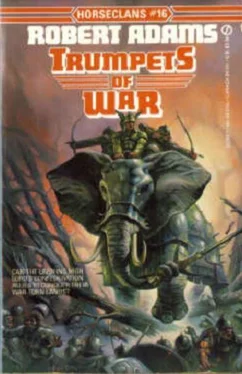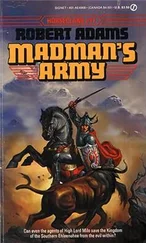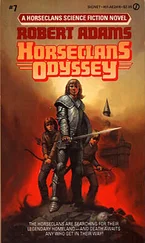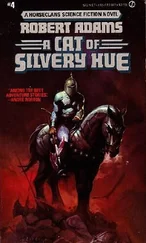“Well, Lord Gabreeos,” growled Pahvlos, “you, distant cousin or no, are about as close to the ancient stock as we’re like to get, this late in the game. I think you’d better start getting used to calling yourself Vahrohn os-designate Gabreeos Kahtohahros. Deliver up to me written oaths to support the Consolidated Thoheekseeahnee of the Southern Ehleenohee, and when I get back to Mehseepolis I will see that the documents confirming you to that title and the lands and city are forwarded to you.”
He turned to the rest of the citizens making up the cavalcade, saying, “What of you all? You know you need and must someday have another lord of this barony. Would you rather have a strange, alien nobleman chosen by the council of Thoheeksee or one of your own, Lord Gabreeos here?”
Their near-hysterical cheers were all that he needed to know that he had chosen aright, in this case. And, after all, Thoheeks Grahvoshad granted him such authority to fill vacant titles.
After receiving the written oaths required and promising that on his return march he would leave a few dozen pikemen and some lancers on loan to the barony, Grand Strahteegos Komees Pahvlos and his army marched on in the direction of Kahlkopolis.
In the week that it took them to finally cross the Lootrah River and so come into the lands of Ahramos’ patrimony at last, Pahvlos’ mind was very troubled, and its boiling thoughts cost him several nights of precious sleep.
It was not the tragedies of Ippohskeera, really, although they had a part in it all. No, old Pahvlos was accustomed—if not really ever inured—to personal loss; his wives, his lovers, his sons and his daughters, all had died in their primes, as had full many a one of his dearest friends, while he lived on to mourn them. Ahramos, his grandson out of his youngest daughter, Pehtra, twin sister of Pehtros, was now the only male of his line left to say the rites over his husk when finally he went to join in death all of those others who had been so dear to him.
His first, young, much-loved wife had died in trying to bear the first child of his loins, and now, after all the years, he still could hear in his mind her voice, though he could barely recall exactly what she had looked like. His second wife had died of a great fever that had swept the capital one summer long ago; she had left him with two sons and a daughter, but the pox had taken off the girl and had left both of the boys badly marked with “the devil’s kiss.” That had been when he had resolved that his next wife would remain in the more salubrious, rural environs of hiskomeeseeahn, and so it had been, though he often had been lonely for them, despite the lovers he had enjoyed in the capital and on campaigns.
Ehlveera, his third wife, had lived and produced a child per year for eleven years, though of course only four of them had lived to adulthood; she had succumbed to a terrible bout of colic while he had been on that long, hellish campaign in the northern mountains, against the indigenous barbarians. That particular campaign had also cost the dear life of his much-loved eldest son, who had suffered a deathwound while serving as an ensign with one of three companies that had held a pass against the foe until the rest of the army could come up and crushingly defeat them. The lad’s body had still been warm when Pahvlos had arrived and been informed, but he had only had enough time to clasp it to his armored breast once and kiss the pock-marked, so-pale cheeks before he needs must dash the tears from his eyes and go on to lead his regiments against the howling barbarians.
His second son had died some years later during a sea fight against pirates; he had been a lieutenant of fleet soldiers and had been thrown into the sea from a catapult platform when his ship was suddenly rammed by a pirate bireme. Both his third and his fourth sons had died in one battle against northern barbarians. The fifth, Pehtros, had died gloriously during the battle that had put paid to one of the earlier rebellions against King Hyamos’ senile despotism.
Pahvlos’ fourth wife, although she had lived long, and been congenial and an excellent stepmother to his children and wards, had proved barren. As she had matured, she had run heavily to fat, as did many an Ehleen woman, but she still never had failed to be loving and jolly with her family and the husband whose press of duties allowed him to visit her and his bucolic domain so infrequently. At last, bedridden after suffering a seizure that had left her partially paralyzed, she had begun to cough up blood and had died a week later.
By the time of his great victory at the Battle of Ahrbahkootchee, of all Pahvlos’ onetime family only one daughter remained alive. This had been Pehtra, wed to the Thoheeks of Kahlkos, with a young son and an infant girl by him. After her husband’s death, certain occurrences had led the widowed Pehtra to believe that some of the late thoheeks’ advisers were inimical to her and the children, so she and a coterie of still-faithful servants and retainers had, of a night, carried out a carefully planned escape from the city and the duchy that had for so long been her home and fled to the haven offered by her birthplace.
There they had stayed until a wasting fever had carried off both mother and daughter within the space of a bare fortnight, sparing the son, however. By then, Pahvlos had been living in quiet and cautious retirement, having been dismissed from the army he had for so long commanded through triumph after glorious triumph. After wedding the widow of a city-lord, a sometime vassal, he and his new wife had taken over the proper rearing and education of his grandson, Ahramos.
When, some seven months before, his middle-aged “bride” had died suddenly of apoplexy, he had decided that with the new Council of Thoheeksee having established at least a modicum of order to the land, the time had arrived when Ahramos should return to the city of his father and claim the lands and the title that were his patrimony.
Yes, the old nobleman knew well loss and its attendant pain, but these were not what troubled his sleeping and waking thoughts, day after day, night after night. No, it was his open, imaginative and creative mind—that flexible mind the easily adjustable thinking patterns of which had given birth to so many stunning strategies and tactics, often on the very spur of the moment and usually resulting in smashing victories over a host of enemies over the long years.
Now faced with things he had for all of his previous life—some seventy years of it—considered ridiculous, impossible tales, he was being forced to admit to himself that these things not might be but must be possible realities.
From the very beginning, he had scoffed at the Horseclanners’ oft-vaunted supposed abilities to read minds, communicate silently with each other and communicate with certain dumb beasts—their horses, their great war-cats and elephants. His certainties had first begun to crumble, however, even before the army had marched, when he had been confronted with the uncanny ability of the barbarian Horseclanner feelahksee to put their three pachyderms through intricate maneuvers that he had never before seen even the best-trained and best-controlled war-elephants perform in either drill or actual combat.
He had not objected overmuch to the horse-archers bringing their war-cats along, even though they had flatly refused to either cage or chain them on the march, for certain of the barbarian tribes of the northern mountains trained and used huge, fearsome war-dogs in battle, so he recognized that could the cats be as well controlled, they just might be a definite advantage. Besides, he truly treasured the Horseclanner barbarians’ rare combination of military values, and as they had refused to march without the cats, he had acquiesced as gracefully as he could. Nor had he had any slightest cause to regret that acquiescence since, for there had been not even one attack by the felines against men or beast in camp, column, remuda or ration herd. The huge, toothy beasts had seemed quite content to feast on the lights of slaughtered beeves or, sometimes, hunt their own wild meat, never to his knowledge having harmed domestic stock in the lands through which they had passed on the march.
Читать дальше












